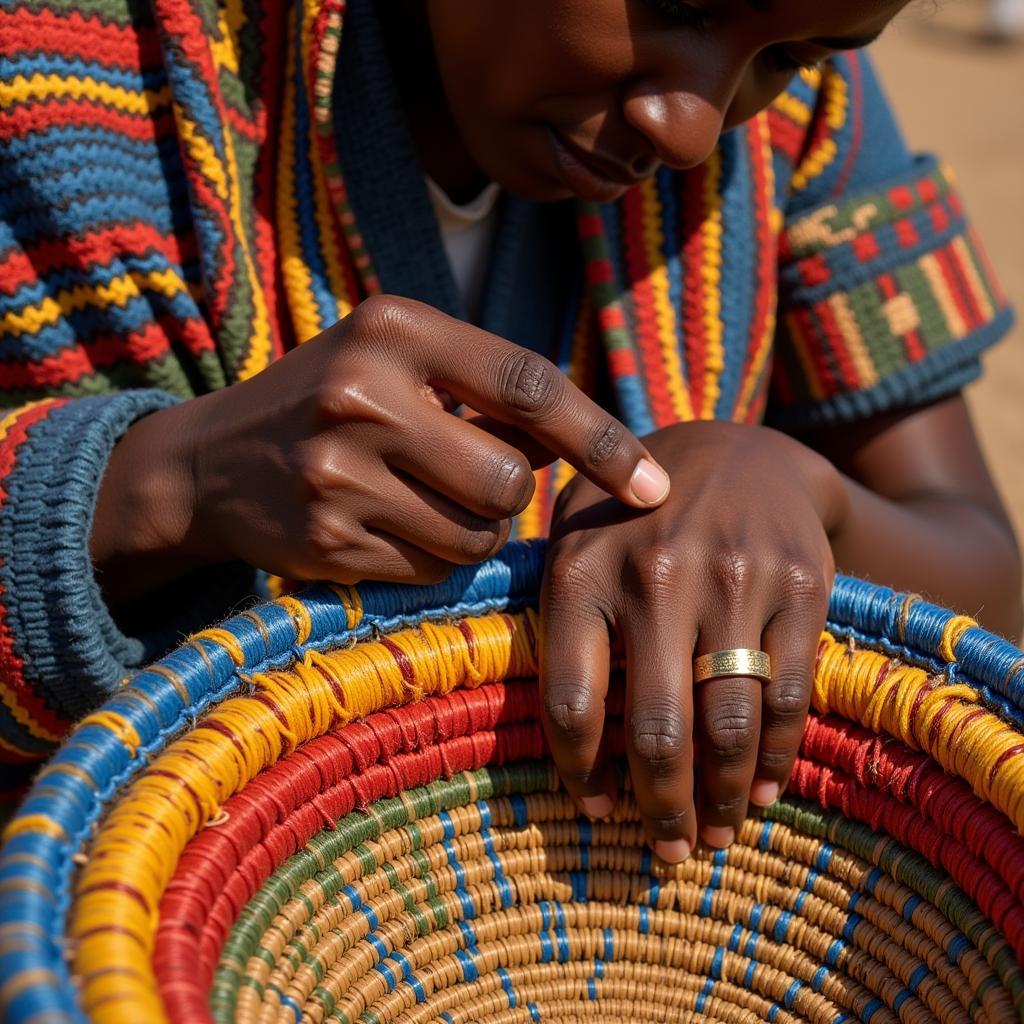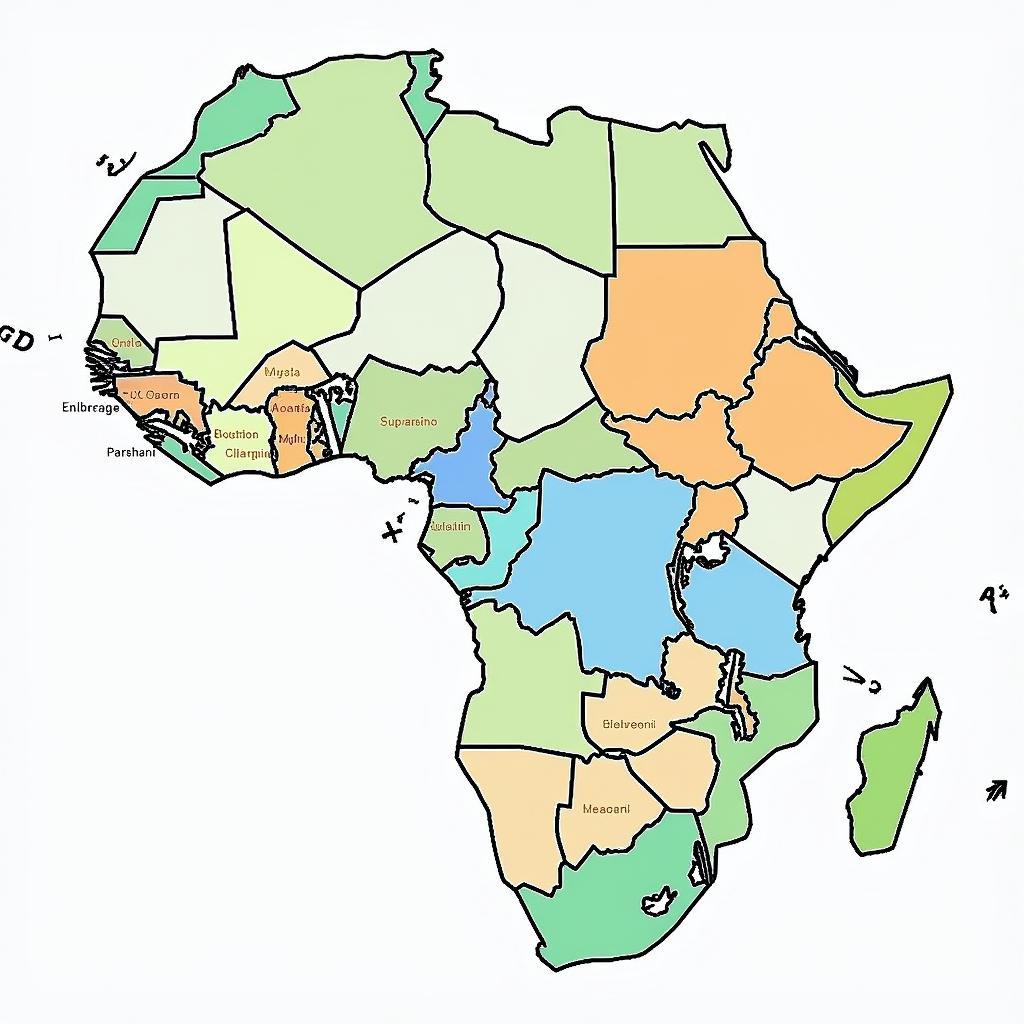African Countries in Crisis 2019: Understanding the Challenges
2019 was a year marked by a multitude of challenges in several African countries. From political instability to economic downturns, many nations faced a complex set of circumstances that impacted the well-being of their citizens. This article delves into the key factors contributing to these crises, their impact on the African continent, and the potential paths toward recovery and sustainable development.
Understanding the Complex Web of Crises
The crises plaguing African countries in 2019 were multifaceted and interconnected. While specific challenges varied from nation to nation, several overarching factors played a significant role.
Political Instability and Conflict
Political instability and armed conflict continue to be major drivers of crisis in numerous African nations. These conflicts often stem from historical grievances, ethnic tensions, and competition for resources. The resulting violence disrupts social structures, displaces populations, and hampers economic progress.
- Example: The ongoing conflict in the Democratic Republic of Congo, fueled by complex political and economic factors, continues to wreak havoc on the nation, leading to widespread displacement, humanitarian crises, and economic stagnation.
Economic Downturns and Poverty
Economic downturns, often exacerbated by global factors such as trade wars and commodity price fluctuations, have significantly impacted African economies. This has led to increased poverty, unemployment, and inequality, further fueling social unrest and instability.
- Example: The decline in commodity prices, a key factor in many African economies, contributed to economic challenges in countries like Nigeria and Angola, leading to budget deficits, currency devaluation, and job losses.
Climate Change and Environmental Degradation
Climate change is an increasingly pressing concern for Africa, contributing to drought, desertification, and extreme weather events. These challenges exacerbate existing food insecurity, displace communities, and strain limited resources.
- Example: The Sahel region of Africa has been particularly affected by drought, leading to widespread hunger, displacement, and conflict over scarce resources.
Health Emergencies and Disease Outbreaks
Outbreaks of infectious diseases, such as Ebola and measles, continue to pose a significant threat to public health and economic stability in Africa. Inadequate healthcare infrastructure, limited access to vaccines, and weak public health systems compound the challenges of tackling these outbreaks.
- Example: The Ebola outbreak in the Democratic Republic of Congo in 2019 highlighted the vulnerability of health systems and the need for greater investment in public health infrastructure and disease prevention.
The Impact of Crises on African Development
The crises in 2019 had a profound impact on African development, hindering progress in various areas:
- Social Development: Displacement, food insecurity, and violence have taken a heavy toll on social development, increasing poverty rates, and undermining efforts to improve education, healthcare, and social services.
- Economic Growth: Economic downturns, coupled with conflict and instability, have hindered economic growth and investment, leading to job losses, increased poverty, and a widening gap between the rich and the poor.
- Peace and Security: Political instability and armed conflict continue to threaten peace and security, hindering the implementation of development programs, and undermining the rule of law.
- Humanitarian Crisis: The crises have resulted in widespread humanitarian needs, with millions requiring food aid, healthcare, and shelter.
Paths Towards Recovery and Sustainable Development
Addressing these challenges requires a multi-pronged approach, focusing on:
- Promoting Peace and Stability: Addressing root causes of conflict through dialogue, political reforms, and inclusive governance is crucial.
- Promoting Economic Growth: Diversifying economies, investing in infrastructure, and creating a conducive environment for investment are essential for sustainable economic growth.
- Strengthening Resilience: Building climate resilience, improving disaster preparedness, and investing in sustainable agricultural practices are critical to mitigating the impacts of climate change.
- Investing in Human Capital: Investing in education, healthcare, and social safety nets is crucial for improving the lives of citizens and building a more equitable and just society.
“The challenges facing Africa are immense, but they are not insurmountable,” says Dr. Amara N’Diaye, a renowned African economist. “With strong leadership, strategic partnerships, and a collective commitment to sustainable development, Africa can overcome these crises and build a brighter future for its people.”
Frequently Asked Questions (FAQ)
1. What are the most common causes of conflict in Africa?
The most common causes of conflict in Africa include historical grievances, ethnic tensions, competition for resources, political instability, and weak governance.
2. How can climate change impact development in Africa?
Climate change can exacerbate existing challenges such as drought, desertification, and extreme weather events, leading to food insecurity, displacement, and conflict over scarce resources.
3. What are the key strategies for promoting economic growth in Africa?
Key strategies for promoting economic growth include diversifying economies, investing in infrastructure, promoting trade, and creating a conducive environment for investment.
4. What role does education play in addressing challenges in Africa?
Education is a critical factor in addressing challenges in Africa by equipping individuals with the knowledge and skills necessary to contribute to development, fostering economic growth, and promoting social stability.
5. How can the international community support African countries in crisis?
The international community can support African countries in crisis by providing humanitarian assistance, investing in development programs, promoting peace and stability, and fostering equitable trade relationships.
6. What are some examples of successful development initiatives in Africa?
Examples of successful development initiatives in Africa include the Millennium Villages Project, the African Union’s Agenda 2063, and the Sustainable Development Goals (SDGs).
7. What are the future prospects for Africa in the face of these challenges?
While the challenges facing Africa are significant, there is also reason for optimism. The continent boasts a young and growing population, abundant natural resources, and a burgeoning entrepreneurial spirit. With strong leadership, strategic partnerships, and a commitment to sustainable development, Africa can overcome its challenges and unlock its potential.


